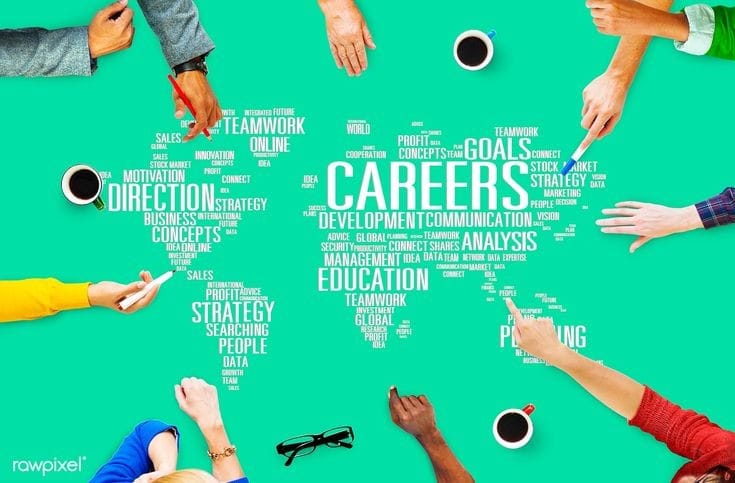Embarking on the journey of finding your first job can feel overwhelming, but it’s also an exciting opportunity to shape your future career. With proper planning and a clear strategy, you can navigate the job market effectively. Help you succeed as a first-time job hunter.
Self-Assessment: Know Your Strengths
Before you begin applying for jobs, take some time to assess your skills, interests, and values. Ask yourself questions like:
What subjects or activities do I enjoy the most?
What skills have I gained through education, internships, volunteering, or hobbies?
What type of work environment suits me best?
Self-assessment tools like personality tests, career quizzes, or speaking with a career counselor can provide insights into industries and roles that match your strengths and preferences.

Research the Job Market
Understanding the job market is crucial for targeting the right opportunities. Start by researching industries that interest you:
Identify in-demand skills and roles in those industries.
Look for entry-level positions that align with your skills and qualifications.
Explore growth prospects, salary ranges, and company cultures.
Websites like LinkedIn, Glassdoor, and Indeed are excellent platforms for job market research. Additionally, consider joining industry-specific forums or attending career fairs to gain firsthand knowledge.
Create a Winning Resume
Your resume is your first impression on potential employers, so it needs to stand out. Here are some tips:
Keep it concise: Limit your resume to one page. Highlight your most relevant experiences and skills.
Tailor your resume: Customize it for each job application by emphasizing the skills and experiences that match the job description.
Focus on achievements: Use action words and quantify accomplishments where possible. For example, instead of saying, “Organized events,” say, “Coordinated three successful community events with 100+ attendees each.”
Include sections for:
Contact Information
Summary or Objective
Education
Skills
Experience
Additional Information

Write a Strong Cover Letter
A well-written cover letter can set you apart from other applicants. Use it to:
Explain why you’re interested in the role and the company.
Highlight how your skills and experiences align with the job requirements.
Show enthusiasm and willingness to contribute.
Keep the tone professional yet engaging, and tailor the letter for each job application.
Leverage Your Network
Networking can open doors to opportunities that aren’t advertised publicly. Start by reaching out to:
Friends, family, and acquaintances who might know of job openings.
Professors, mentors, or alumni from your school or college.
Professional connections on LinkedIn.
Attend industry events, workshops, or meetups to meet professionals in your field. Building relationships and expressing genuine interest can lead to referrals and valuable advice.
Prepare for Interviews
Once you’ve landed an interview, preparation is key to making a good impression:
Research the company: Learn about its mission, values, products, services, and recent achievements.
Practice common interview questions: Be ready to answer questions like, “Tell me about yourself,” “What are your strengths and weaknesses?” and “Why should we hire you?”
Prepare your own questions: Show interest by asking about the role, team, or growth opportunities.
Dress appropriately: Choose professional attire suitable for the company culture.
Practice mock interviews: Rehearse with a friend, mentor, or through online tools to gain confidence.

Build an Online Presence
In today’s digital age, having a professional online presence is essential. Follow these steps:
Create a LinkedIn profile: Highlight your skills, experiences, and achievements. Connect with professionals in your field and join relevant groups.
Clean up your social media: Remove any content that may appear unprofessional or controversial. Employers often check candidates’ social media profiles.
Showcase your work: If applicable, create an online portfolio or blog to display your projects, writing samples, or creative work.
Develop Essential Soft Skills
Employers value soft skills as much as technical abilities. Focus on developing these key skills:
Communication: Practice clear and professional verbal and written communication.
Teamwork: Collaborate effectively with others in group settings.
Time Management: Prioritize tasks and meet deadlines consistently.
Adaptability: Be open to learning and embracing change.
Apply Strategically
When applying for jobs, avoid the “spray and pray” approach of sending generic applications to multiple employers. Instead:
Focus on roles that align with your skills and interests.
Apply early, as many employers fill positions on a rolling basis.
Follow the application instructions carefully, including all requested documents.
Track your applications using a spreadsheet to stay organized and follow up when appropriate.

Be Resilient and Learn from Rejections
Rejections are a natural part of the job hunt, especially for first-time job seekers. Instead of feeling discouraged:
Ask for feedback to understand areas for improvement.
Reflect on your performance and refine your approach.
Keep a positive mindset and stay persistent.
Remember, every rejection brings you closer to finding the right opportunity.
Consider Internships and Volunteering
If finding a full-time job takes time, internships or volunteering can be great alternatives to gain experience, build your resume, and expand your network. Many internships lead to permanent positions or provide valuable references.
Set Realistic Expectations
Your first job may not be your dream role, but it’s an important stepping stone. Focus on:
Gaining practical experience.
Learning industry-specific skills.
Building professional relationships.
Use this opportunity as a foundation for future career growth.
Stay Informed and Updated
The job market evolves rapidly, so stay informed about trends in your industry. Subscribe to newsletters, read industry blogs, and participate in relevant workshops or courses to enhance your skills.
Finding your first job is a challenging but rewarding process. By understanding your strengths, tailoring your applications, and preparing thoroughly, you can increase your chances of success. Remember to stay patient and proactive, as every effort you make brings you closer to achieving your career goals. Good luck!
https://nimblefoundation.org/
https://www.facebook.com/nimblefoundation1
https://www.linkedin.com/in/satish-kakri-17224417/
https://nimblefoundation.org/our-clients.html
Thanks for reading.












